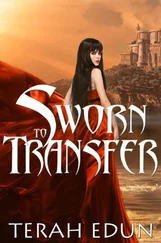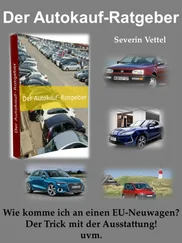It was when Bolive, the Sabme Sun God, had begun to appear regularly over the southern horizon that one of our neighbours came to the entrance of Rassa's cabin and called excitedly down the tunnel. He gabbled his words so fast that I could not understand what he was saying, though Allba had spent many hours teaching me a working knowledge of her language. Whatever the hunter's message, Rassa immediately put aside the drum he was repainting and rose to his feet. Reaching for his heavy wolfskin cloak, he gestured for me to follow, and the two of us emerged from the cabin to find a group of eight Sabme hunters, looking towards him, impatient for instructions. One of the Sabme said something about 'honey paws', and when Rassa replied, the hunters began to disperse towards their cabins, calling out to their families excitedly.
'What's happening?' I asked Rassa.
'The time has come to leave our cabins and live in our tents again, though this is much earlier in the season than is usual,' he said, 'but the Old One wants it to be that way.'
'The Old One? Who's he?'
Rassa would not answer directly. He asked his wife and Allba to get ready to leave the cabin. So uncomplicated was the Sabme life that our entire siida was on the move within the time it took for the men, women and children to load our belongings onto light sledges, strap infants to their mothers' backs in tiny boat-shaped cradles lined with moss, and fasten on skis. I had no sledge to pull as I was so clumsy on skis, nor was I given a pack because I was already heavier than the Sabme and would have broken through the crust of snow.
We returned to the camp that we had left before we went into the cabins, and once again triple-covered the standing tent frames with deer hides. Everyone seemed in great good humour, leaving me confused as to what was going on.
'What is it?' I asked Allba, 'Why did we leave the cabins so quickly?'
'It's time for the most important hunt of the entire year,' she replied. 'The hunt that will ensure our siida's future.' 'Are you going on the hunt?' 'That is forbidden.'
'But you're almost our best hunter,' I objected. 'You will be needed.'
'Brothers are needed, not women,' she replied enigmatically as she tugged the final layer of the tent's deerskin into position.
I was still bemused the next morning when I woke up to find myself covered with a layer of snow a hand's breadth deep. The smoke hole in the top of the tent had been left open, and a late heavy fall of snow had half-buried the camp. No one seemed perturbed.
'Here, wear these,' said Allba, handing me a pair of shoes she had been working on all winter.
I turned them over in my hand. 'Can't I wear my usual shoes?'
'No,' she said. 'I stitched those with the seams inside so that the snow does not gather on them and I made them from the skin from a boaz head. The thickest and strongest hide, it is fitting that you should wear them today.' She also insisted that I put on my best winter garment — a heavy wolfskin cape — though it looked strange on me because the cape had previously belonged to Rassa, and Allba had lengthened it with a skirt of reindeer hide to make it fit my extra height. Rassa himself was donning his noaide's belt hung with the jawbones of the various fur-bearing animals we hunted, a cap sewn with sacred amulets and a heavy bearskin cloak. I had never seen him wear all these items at the same time, nor the short staff wound with red and blue ribbons and its cluster of small hawk's bells. When I offered to carry his sacred drum for him, Rassa shook his head and gestured for me to leave the tent ahead of him. Outside I found every hunter in our siida already waiting and dressed as if for a festival. Some had put on dark blue surcoats made of cloth acquired from the traders, and their wives had sewn the hems with strips of red and yellow ribbon. Others wore the familiar deerskin hunting garments, but had added colourful hats and belts and tied sprigs of spruce to their sleeves. They all looked excited and eager, and it took me several moments to realise that they were not equipped with their usual hunting bows and arrows, throwing sticks and wooden traps. Each man was armed with a stout spear, its shaft of rough wood, the tip a broad metal head.
I had no time to ask the hunters why they had changed their equipment because Rassa now made his formal appearance. He emerged from the tent and tramped through the snow to the flat boulder at the centre of our camp. With each step he softly jingled the bells on his noiade's wand and chanted a song I had never heard before. The words were very strange. They came from a language which bore no relation to that I had learned over the winter. When Rassa reached the rock he placed his magic drum on it, then faced towards the south. He raised the wand three times and called out what I took to be an invocation. Then he reached inside his cloak with his right hand and pulled something out from under his left armpit. He held it up for all to see. It was an arpa ring, but not of brass. From where I stood, I guessed that it was of gold and was sure of it when Rassa tossed the ring onto the drum skin. It fell with a dull and heavier thud than a token made of baser metal.
Rassa struck the drum's wooden rim with the end of his noiade's wand. The golden arpa skidded across the taut deerskin and came to a halt. Everyone craned forward to see the symbol where it rested. It lay on the serpent sign of the mountains. A shiver of delight ran through the crowd. The small, nimble men glanced at one another and nodded happily. The ancestors were observing and approving. Again the noiade rapped the drum with his staff and this time the golden ring came to rest on the figure of a bear. Now I detected that the onlookers were puzzled, almost doubtful. Rassa sensed their hesitation. Instead of striking the drum a third time with his wand, he snatched up the golden arpa and with a cry like a heron's angry croak he tossed it in the air so that it landed on the drum skin. By chance the ring landed on its edge, and began to roll, first to the edge of the drum, then rebounding it began to trace its path erratically. It wobbled along as if uncertain until it finally slowed, remained for a heartbeat on its edge, then toppled gently to one side and settled with the gentle reverberation that a coin makes as it falls upon a gaming table. Again all the spectators leaned forward to see where it had come to rest. This time the arpa lay upon the sign of my saivo companion — the bear.
Rassa did not hesitate. He picked up the ring, walked across to the nearest hunter and took away his heavy spear. Next he placed the golden ring over the spear tip. Finally he turned to where I stood and, with a formal gesture, placed the spear in my hand.
The drum had decided. The hunters dispersed to their tents to collect their skis and Rassa led me to where his wife and Allba were standing by our tent, watching. Allba knelt down in the snow to tie on my skis and, as she rose to her feet, I made a movement as if to embrace her. To my chagrin, she leaped back as if I had struck her and moved away from me, making it plain that she wanted nothing to do with me. Puzzled and a little hurt, I accompanied her father to where a little procession was forming up. It was led by the man who had first called Rassa from our cabin. I recognised his voice. He was the only one without a heavy spear in his hand. Instead he carried a long hunting bow of willow bound with birch bark. The bow was unstrung and a spruce twig was fastened to the tip. Behind him came Rassa in his bearskin cape, then myself, and finally the remainder of the brightly dressed hunters in single file. In complete silence we left the camp and began to ski through the forest, following the man with the bow. How he picked his way I could not tell, for the snowfall had obliterated all tracks. But he did not falter and I was hard put to it to keep up with the pace. From time to time he slowed so that I could catch my breath, and I marvelled at the patience of the Sabme hunters behind me who must have thought me half-crippled on my skis.
Читать дальше








